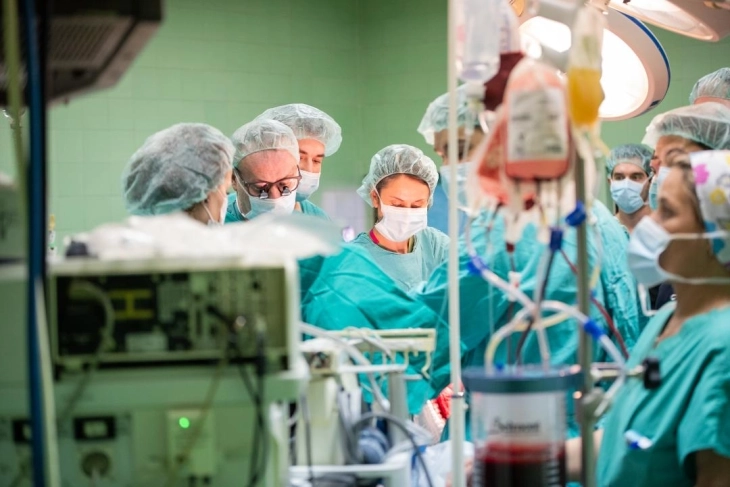EC: Progress made on transplantations, funding for cancer screening and rare diseases is insufficient
- A comprehensive and proactive approach on cancer screening is lacking in North Macedonia, and funding for cancer screening is insufficient. Following public pressure, funding for rare diseases somewhat increased but not sufficiently to cover the costs for medical treatment of all registered patients. No progress was made on tobacco control. Smoking in public areas should be penalised in line with the EU acquis, but this is not fully applied, says the European Commission (EC) in its latest progress report on North Macedonia.

Skopje, 12 November 2023 (MIA) - A comprehensive and proactive approach on cancer screening is lacking in North Macedonia, and funding for cancer screening is insufficient. Following public pressure, funding for rare diseases somewhat increased but not sufficiently to cover the costs for medical treatment of all registered patients. No progress was made on tobacco control. Smoking in public areas should be penalised in line with the EU acquis, but this is not fully applied, says the European Commission (EC) in its latest progress report on North Macedonia.
"Some progress was made on addressing last year’s recommendations, by the adoption of the new Law on consumer protection, which is designed to align with many items of the EU consumer acquis. The other recommendations remain valid. The country’s firstever liver transplantation was made. Many challenges remain to be addressed in the area of public health, notably in regard to tobacco control, and the availability, scope of services, geographical distribution and funding of primary healthcare and on cancer screening could be improved. Alignment with EU health acquis remains incomplete," reads the report.
The EC recommends that in the coming year, the country should in particular adopt and start to implement the next three-year consumer protection strategy and reinforce the capacity for market surveillance, intensify efforts on tobacco control by implementing the relevant EU acquis effectively and ratifying the Protocol to Eliminate Illicit Trade in Tobacco Products, and ensure adequate funding and capacity to ensure the early detection of cancer and rare diseases based on data from the registers.
According to the EC, progress was made on blood, tissues, cells and organs. The number of performed transplantations continued to increase, including the first-ever liver transplantation. However, the country is yet to align with the acquis on patients’ rights in cross-border healthcare.
In terms of public health, during the reporting period, the e-health application was updated with new functionalities and new modules, and a mobile application called “MyHealth” was launched, the EC notes.

The report points out that the ratio of doctors and nurses per 100 000 inhabitants continues to be below the EU average, and medical staff, nurses and specialists continue to leave the public health sector to work either in the private sector or abroad.
Out-of-pocket healthcare costs remain high, at 38%, constituting a barrier to equal access to healthcare.
On COVID-19, few preventive measures remain in place.
The EC notes that some efforts were made with regard to fighting health inequalities, particularly for people living in poverty and people living in remote areas, though these were led by international organisations and the non-governmental sector rather than by the health authorities.
The national strategy for the prevention of corruption identified the health sector and inspectorates as vulnerable to corruption, in particular as there are no effective criteria for determining the prices of health services or of medicines. Procedures for treatment abroad are non-transparent and not objective. The inspectorates responsible for market surveillance and product safety have unclear and overlapping jurisdictions, and inadequate staffing. Most of the anti corruption strategy activities in the health area have not been carried out. Strengthening integrity, asset declarations and digitalisation are considered key tools for preventing corruption.
Photo: Ministry of Health/MIA







